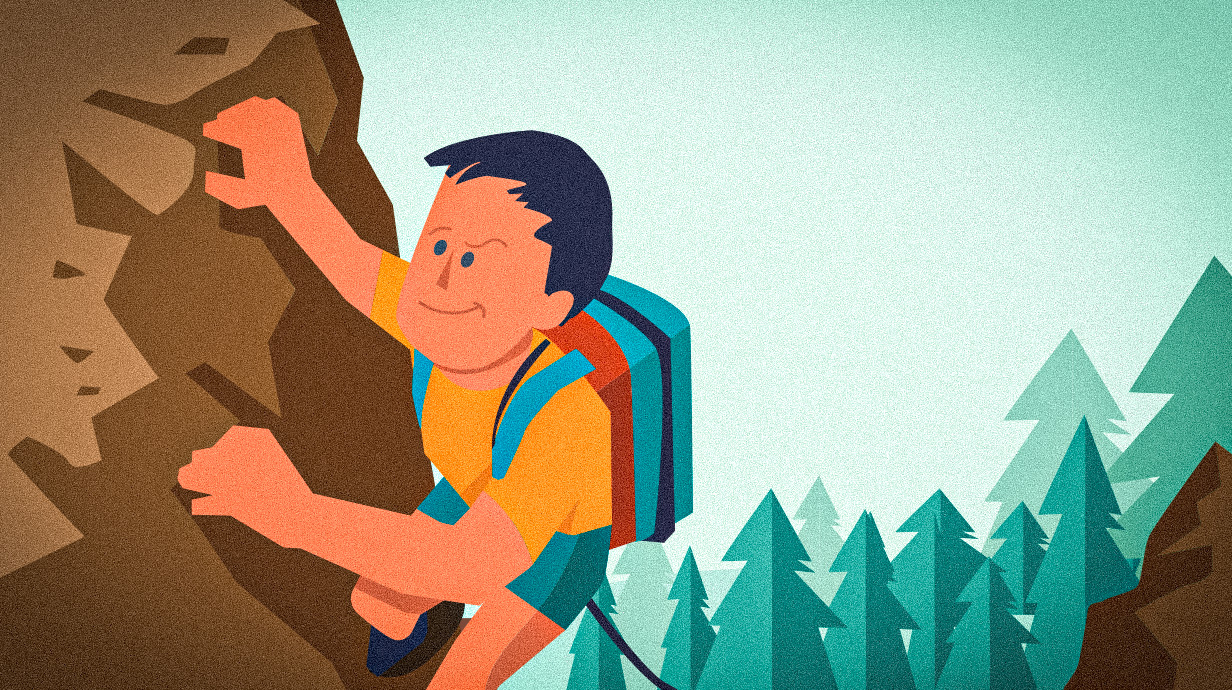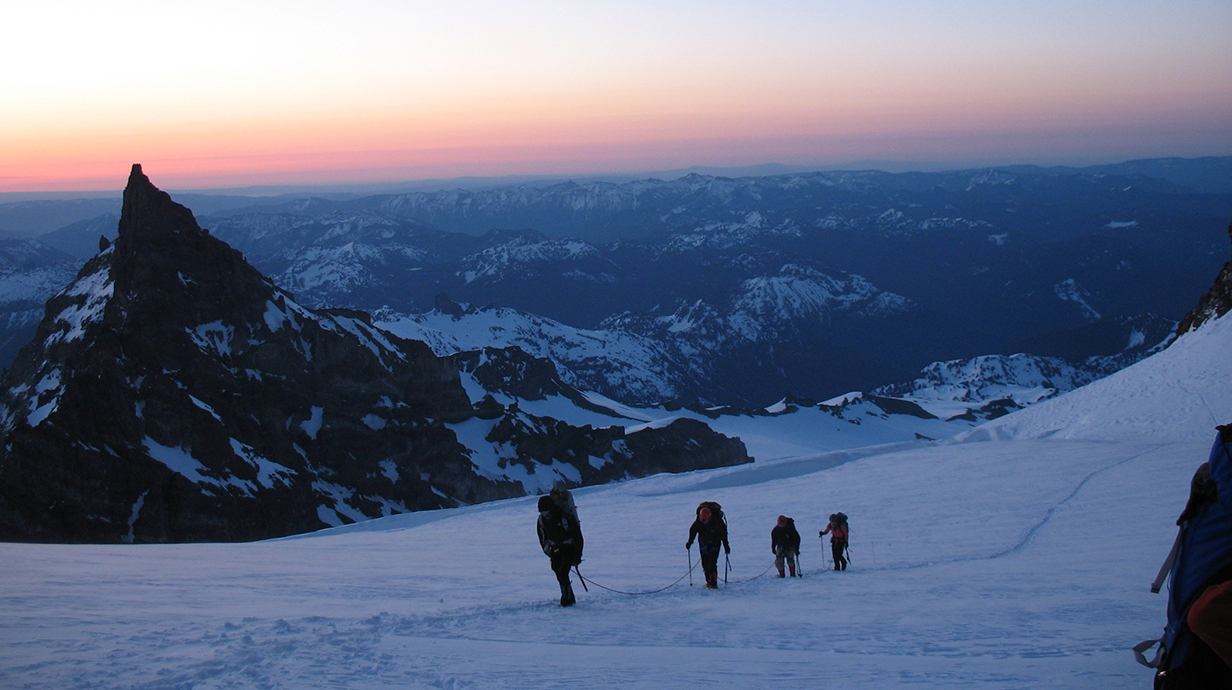Why Some Adventurers Chase Danger to Find Meaning
Study finds that the appeal of extreme recreation is about mastering risk with preparation and self-discovery

OXFORD, Miss. – Climbing mountains or going adventuring in hostile terrain can be dangerous, even life-threatening. But a University of Mississippi marketing professor found the old adage that "with great risk comes great reward" holds clues to why thrill-seeking is so satisfying.
Christopher Newman, a professor in the Department of Marketing, Analytics and Professional Sales, recently completed a study into why consumers are drawn to demanding and hazardous activities. He collaborated with Steven W. Kopp, of the University of Arkansas, and Justine Rapp Farrell and Kenneth Bates, of the University of San Diego, on the study.
Their research, published in Psychology & Marketing, examined the psychological complexities of adventure tourism, revealing how participants pursue values, ideals and identity transformation in the face of their own mortality. The idea was sparked when Newman completed a guided climb to the summit of Mount Rainier in Washington.

A study conducted by marketing professor Christopher Newman and colleagues reveals that some people are drawn to extreme activities, such as mountaineering, because they enjoy the preparation, teamwork and self-discovery involved in facing and overcoming risk. Illustration by Cole Russell/University Marketing and Communications
"We talked about his adventures and wondered about the 'marketing' of these kinds of adventures," Kopp said.
At 14,441 feet, Mount Rainier is the highest peak of the Cascade Mountain Range. It is considered in the mountaineering community to be the most strenuous physical test within the contiguous United States.
"We were constantly faced with the real possibility of serious injury or death with dangers ranging from blinding snowstorms to hidden crevasses to potential avalanches," Newman said. "About 1 in 4 climbers in our expedition never made it to the summit due to various reasons ranging from serious injuries to lack of conditioning."
Newman joined 21 other mountaineering enthusiasts for the five-day trek. During the ascent, he observed his fellow climbers and discussed the adventure with them.
"One thing that is particularly unique about this study is that this is not the kind of consumer research that can rely on survey-based, quantitative analysis," Kopp said. "To derive the depth of understanding of the mountaineers' experiences, we needed to have the narratives and descriptions from the participants."
Several months later, Newman and his collaborators conducted in-depth interviews with eight of the climbers to assess their motivations and expectations for the expedition.

The researchers hoped to address a gap in consumer research, moving beyond short-term thrill and adrenaline to examine the deeper, long-term psychological fulfillment derived from high-risk pursuits such as mountaineering.
The team used terror management theory to explain the appeal of high-adventure activities, positing that climbers seek enduring satisfaction and identity construction as a symbolic defense against mortality awareness. Some people are very aware of their own mortality, especially when engaging in activities that involve real danger, such as mountaineering, they explained.
"Experiences that challenge your mortality can offer intangible benefits that other, less risky experiences simply cannot," Newman said. "Everyday people should know that many extreme adventurers are not in it for the danger; instead, they enjoy demonstrating competence, discipline and control to overcome the danger."
Some people are very aware of their own mortality, especially when engaging in activities that involve real danger, such as mountaineering.
"We found that some people like to put themselves in danger for recreation, but it's really mitigating that danger that is the major reward for them," Newman said. "They take pride in managing the risk through proper preparation and execution of practiced skills."
The research found that climbers gain the deepest sense of fulfillment from preparation, teamwork and skillful risk management rather than the rush of peril itself. Awareness of mortality heightens the meaning of the experience, strengthening climbers' sense of identity and connection to their community, Newman said.
"You tend to strongly adhere to the values and behaviors of others like you who are facing the same danger," he said. "In mountaineering, this includes engaging in activities like disciplined preparation and execution of learned skills to effectively reduce the risk.

"Doing so increases your self-esteem and makes you feel like more of a 'climber,' which reduces the anxiety associated with the danger."
Still, this awareness can help people appreciate the shortness of life, motivating them to build meaningful relationships and make a lasting, positive difference in the world, Newman said.
The results should help outfitters and tour operators market to people who enjoy such high-risk activities, said Ken Cyree, dean of the School of Business Administration.
"Dr. Newman has been a prolific publisher in marketing, and his recent article shows the breadth of his reach into different areas of life," he said. "He and his co-authors have shown how mountaineering creates satisfaction and how to create value in a specialized market for adventure tourists."
The results can be used cautiously to understand other big or risky buying decisions, Kopp said.
"The preparation involved in the search for the perfect gear was intimately tied to the actual 'service' and anticipation of the guided climb," he said. "Managers should recognize that consumers derive satisfaction from the preparation processes that precede the 'event,' whether that involves physical training, complex health navigation or financial planning."
Top: Marketing professor Christopher Newman stands at the summit of Mount Rainier in Washington. Newman used his experiences on the trek to observe his fellow climbers and fuel a study of why some people are drawn to adventure tourism. Submitted photo
By
Jordan Karnbach
Campus
Office, Department or Center
Published
November 18, 2025
